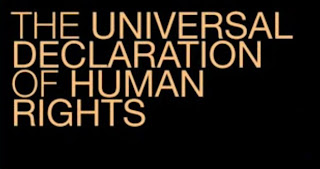.jpg)
Today in the Evening Standard, on Governor Palin, Vice-Presidential candidate. Drawn from the first paragraph:
'Onto the gladiatorial set of the vice presidential debate she strode, firmly upholstered in a black suit exuding sexy sobriety without being anywhere near fashionable. The trademark beehive had softened into a copper-highlighted style girlishly tumbling around her shoulders, like the shiny-shiny women in the hair colour ads. Homely current (sic) bun eyes were outlined in warrior black kohl.' -Anne McElvoy
Well done, Anne. Within the first paragraph, you have simultaneously lowered the tone of political debate, alerting the reader to the smug and vacuous style that obtains throughout the rest of your piece, and setting back the cause of women seeking to participate in politics as human beings, rather than mannequins. That's a lot of cunting to get done in a few dozen-odd words, and I'm frankly impressed, Anne. You must have gone to a real school.

As for the actual debate, pundits and commentators are calling it very close, with some saying that they 'both won'. This is nonsense. The surprise here is that Joe Biden, who is known for cluttering his words and saying unfortunate things, did not, and that Sarah Palin did not speak politics like a petulant child. Sarah Palin still embarrassed herself thoroughly from beginning to end. Her assertions on foreign policy, economics and social policy were all firmly refuted by Biden, her several factual inaccuracies, lies, and citations out of context were quashed by Biden throughout, and her smug folksy demeanour seems to be finding less purchase nowadays.

Biden, on the other hand, performed admirably. Most impressive was the discipline he showed in avoiding personal attacks or tonal insinuations, and sticking to his arguments concerning policy. Of particular note was where Biden specifically held himself back from stating that McCain has been opposed to every major attempt to extend the world's arms control regimes, saying 'I shouldn't say every...'. This is an exaggeration Palin would have been only too happy to make, but the fact that Biden compromised the rhythm and forcefulness of his comment for accuracy is admirable. The entire debate is on
Youtube, and both my readers should watch it.
Top Quote:
'John McCain, knows how to win a war, he's been there, he's done it' - Sarah Palin
If 'he's been there' refers to Vietnam, then John McCain knows how to lose an ill-executed war of aggression against a much smaller power, make an undignified withdrawal, then loudly claim for the following 40 years that 'it was a draw'.
(This is the end of my comments on the debate. The rest of the post consists of my general observations on the political techniques of the Right. Read at your own peril.)
This is by no means surprising though. Neither is it the especial fault of Sarah Palin. The Republican party, as with the vast majority of right-wing parties, have to contend with the peculiar phenomenon whereby democracy requires the majority vote, and the majority of any country is usually the worse off. Yet the Republican party is mind, body and soul a pro-business, anti-redistribution party, with a strong dollop of foreign aggression and domestic social control thrown in. The three main tools that all right-wing parties across the world use to win elections are ever the same: Jingoism and fearmongering, populism, and the Holy Grail of Efficiency.

Everyone is familiar with the first: the Right's incessant notion that the people are under constant siege. In the UK it is from hoodies, from 13-year old black boys with knives, from jihadis living in Whitechapel. In the USA it is from Iran, Iraq, and Afghanistan. It becomes a matter of utmost priority to ensure that these elements are eradicated with extreme prejudice. This, the Right will tell you, is far more important than economic reform, diplomacy, or any kind of progressive social reform. This is because of the tried and true political credo that, if a nation feels itself at war, or in mortal danger, it will ignore all other issues. This is the first way the right-wing gets the poorer majority to forget that they are voting for a government that will
transparently harm their interests.

The second main way they do this is through populist lies. The Right, in the USA especially but everywhere else as well, loves spinning stories about the 'honest, hardworking family': usually lower middle-class, devoutly religious, no-nonsense, awash with dignity and sobriety. The implication here is that decency, religion and honesty are all characteristics of the right, not the depraved, 'progressive', vicissitude-ridden left. This is a powerful narrative, especially in countries with huge swathes of fanatically religious ill-educated voters, like most of Latin America, most of Africa, and of course, the USA. This is the key behind Palin's effectiveness. This is how the Right convinces the poor majority, especially those in rural or backwater areas, that it is a government run for people like them, because it is a government formed of people like them.

The third way the Right deceives the poor it is about to fuck over is through the ubiquitous spectre of efficiency. The right loves to talk about cutting taxes, it is in every election all over the world one of its main talking points. This is because no one likes paying taxes, and it is politically attractive to tell people that you're not going to take as much money from them. But when the Left inevitably brings up the very attractive government projects of redistribution and welfare it has planned, the voters begin to doubt that the Right is really on their side. This is when the Right, in every single election, will say that it can execute just as many government projects as the Left, and levy less taxes. The Right says that it can do this through 'streamlining', 'reform', 'oversight', 'greater efficiency', or a dozen other empty words. There is no reason to believe that the Right is somehow magically better at cutting costs and streamlining operations than the Left. And yet voters consistently see the Right as more down-to-earth, more realistic and ultimately more efficient than the Left.
Of course, all these lies are terribly effective. The rural poor are often the strongest voting base for the Right, and it has been shown to a depressing extent that the lower the education level of the working class, the more likely it is to vote for the Right. It's a basic political truth that Left-wing policies are aimed at ameliorating the lot of the poor and the struggling, and Right-wing policies are not. I'm not saying that you have to be stupid to vote for the Right. I'm saying you have to be stupid to be poor and vote for the Right.
Thus concludes the first Politic Blunder Feature length post.
P.S. Thanks to Stephen for the source.
 Yesterday Israel opened the crossings to Gaza which had previously been blockaded by the Israeli Defence Force, and for the first time in months allowed aid through to the beleaguered Hamas stronghold-town. This was an unusual move, since the six-month truce that both parties were following ended a few days prior when some Gazans decided it would totally hilarious to fire rockets into Israeli settlements.
Yesterday Israel opened the crossings to Gaza which had previously been blockaded by the Israeli Defence Force, and for the first time in months allowed aid through to the beleaguered Hamas stronghold-town. This was an unusual move, since the six-month truce that both parties were following ended a few days prior when some Gazans decided it would totally hilarious to fire rockets into Israeli settlements. 












 rtant. Ghana is very much part of the African experience and progression. North African countries like Algeria and Egypt are ruled by different political cultures and norms. They are affected by Arabism and their proximity to oil and the Mediterranean Sea. Likewise, South Africa had its experience with Apartheid, and its flirtation with wealth.
rtant. Ghana is very much part of the African experience and progression. North African countries like Algeria and Egypt are ruled by different political cultures and norms. They are affected by Arabism and their proximity to oil and the Mediterranean Sea. Likewise, South Africa had its experience with Apartheid, and its flirtation with wealth. 





















.jpg)








